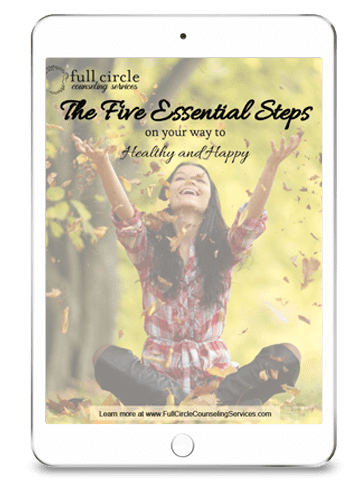We all know the drill…new year…new resolutions. While some say “bah-humbug” to resolutions because they seldom last past February, I say bring on the change!
As a counselor, I’m obviously a big believer in continual growth and improvement. So I’d like to help you consider different ways to approach and ultimately succeed with your New Year resolutions…aka…positive life changes.
Make several smaller resolutions or goals over the course of the year. I read an article in which the author chose one new bad habit to stop, or one new healthy behavior to start each month. Though 21 days has been routinely recited as a the amount of time it takes to form a new habit, the actual average number of days according to James Clear in his book is 66 days. And to be even more realistic, it could be anywhere from 2 months to 8 months, depending upon many variables. Sorry to be a killjoy, but the bottom line is, change is always a process, not an event. And breaking habits take a long time and consistent effort.
Choose one word or phrase as a focus or intention throughout the new year. This helps eliminate the overwhelm of feeling like you have to “change everything” and can therefore feel more do-able. It could be a feeling word, like focusing on creating more peace or joy in your life. It could be a “theme for the year”, as in, 2020 will be your year to “create more connection”. Perhaps it’s a state of being, like living with more gratitude in this new year. Or an action, like you are going to do more traveling or less procrastinating. It could be anything, really; whatever resonates with you and your unique journey.
Slow down enough to really check in with yourself weekly. Use meditation. Journal. Take long rambling weekend walks. Get an accountability partner. Do whatever works for you to settle down, settle in and introspect. Be gentle with yourself. Change is hard. Assess, evaluate and move forward without expecting perfection. Any progress is good and with enough time and attention, you will be successful.
Use Cognitive Behavioral Therapy (CBT) which I teach most all my clients, to silence that inner critic that yells “failure” at you or beats you up when things don’t go as planned. I really hate that little voice, which sometimes is so very loud, don’t you? But, trust me, it’s the BEST feeling in the world to shut that voice right down once you’ve mastered CBT.
Behavior modification is another important tool. We don’t really eliminate bad habits; we replace them with new, hopefully, healthier habits. The Power of Habit, by Charles Duhigg is a game changing book for understanding and utilizing behavior modification to replace your bad habits with healthy behaviors. Once you understand all the dynamics around your particular habit, it becomes so much easier to change it.
Stop multi-tasking…start practicing mindfulness. It’s as easy, and as difficult, as reminding yourself to be “in the moment”. A mantra I like from a meditation on the Insight Timer app (of which I am a huge fan) is, “Forget about the past, forget about the future…now is the only reality….now is all that matters.” Using the insight timer and/or creating a meditation practice will definitely help ensure greater success of your goals.
Hypnosis can be a great support in behavior change. Hypnosis is simply allowing your mind and body to become completely relaxed and therefore more open to suggestion. It’s really a fun and quite amazing process. If you’ve never tried it, I highly recommend it! You’ll find you can really benefit from utilizing the power of your sub-conscious mind using hypnosis to achieve your goals.
Best of luck with your New Year’s resolutions. And whether it’s the start of new decade or the start of a new day, never stop trying to be your best self!


